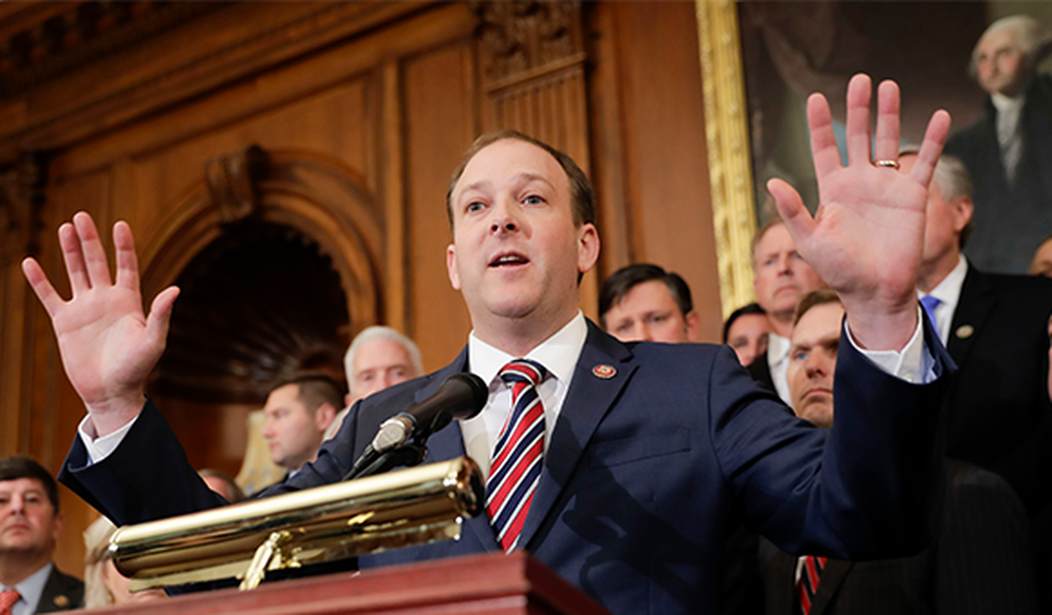Lawmakers are warning President Biden that rejoining the Joint Comprehensive Plan of Action, otherwise known as the infamous Iranian nuclear deal, would be tragic. President Trump withdrew the U.S. from the agreement in 2018 because he said it amounted to "nuclear blackmail." Led by Rep. Lee Zeldin (R-NY), a group of 120 House Republicans sent in their plea to Biden: Don't rejoin the agreement unless there are some major edits to it.
“For reasons that include expiring sunset clauses, flaws with the verification arrangement, and many other dynamics, attempting to reenter the Iran Nuclear Deal as is would be a strategic U.S. foreign policy blunder,” Zeldin said.
Reentering the JCPOA as is (expiring sunset clauses, flawed verification, etc) would be a foreign policy blunder & 120 House Republicans are urging @POTUS NOT to give in. Domestic politics and partisan emotions aren't acceptable reasons to appease Iran. https://t.co/GTLaXghSOv
— Lee Zeldin (@RepLeeZeldin) February 8, 2021
"The decision not to recertify the Iran Nuclear Deal in 2017 was in America’s best interests," the lawmakers continue. "Even if the United States never withdrew from the deal, poorly construed sunset provisions baked into the deal would now be upon us, meaning Iran would be well on its way to obtaining a nuclear weapon while having violated not only the spirit but the letter of the deal."
They ask the president to consider Iran's continued uranium enrichment scheme:
Iran is violating both the uranium enrichment levels and amount of stockpiled enriched uranium it can hold pursuant to the JCPOA in the following ways:
In May 2019, Iran stopped selling its enriched uranium and heavy water deposits.
In July 2019, Iran began enriching uranium to ~4.5%, above the 3.67% limit established in the JCPOA.
In September 2019, Iran abandoned all the commitments that were in place regarding research and development of centrifuges.
As of November 6, 2019, Iran was enriching uranium gas at Fordow. Under the JCPOA, no nuclear material was permitted at Fordow.
As of November 2020, according to the IAEA, Iran’s stockpile of low-enriched uranium was 12-times greater than that which was permitted under the JCPOA. 6. In January 2021, Iran commenced the enrichment of uranium at Fordow to 20% purity.
Recommended
"It is a blueprint for exactly how Iran can secure massive sums of money and obtain a nuclear weapon in short order," the congressmen write of the JCPOA.
Just ask former U.S. Ambassador to the United Nations Nikki Haley.
In her book, "With All Due Respect," Haley recalls her concerns following her visit to the United Nations Office at Vienna, Austria.
"To begin with, Iran had flatly denied that the IAEA could inspect military sites," Haley writes. "But we knew these sites were locations where Iran had engaged in nuclear activity in the past. Did the IAEA inspectors know for a fact that no nuclear activity was occurring at these two sites? How could they know if Iran refused to allow site inspections?"
"We had other questions about the crucial issue of exactly how we knew what Iran was up to," she continued. "The agreement allowed Iran to put off inspections of suspected sites for up to 24 days more than three weeks. What could be done in three weeks to wipe a site clean?"
And so Rep. Zeldin and his colleagues easily reach their conclusion:
"Iran doesn’t want the U.S. to reenter the JCPOA for their love of humanity. Iran wants this because it knows what to expect from last time around: making out like bandits with the sanctions relief, and ramping up its other non-nuclear malign activities, while still securing their nuclear weapons capability."

























Join the conversation as a VIP Member